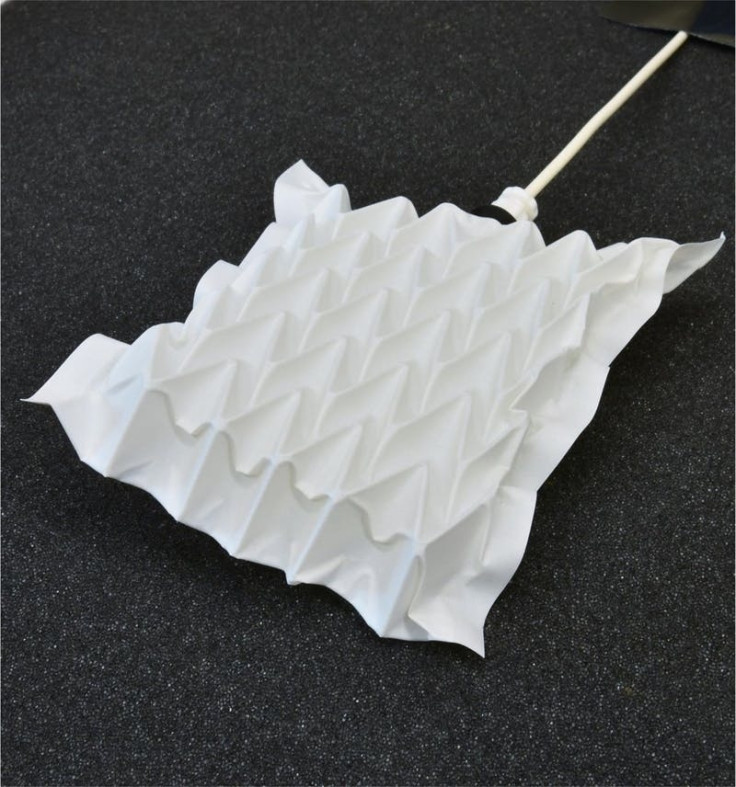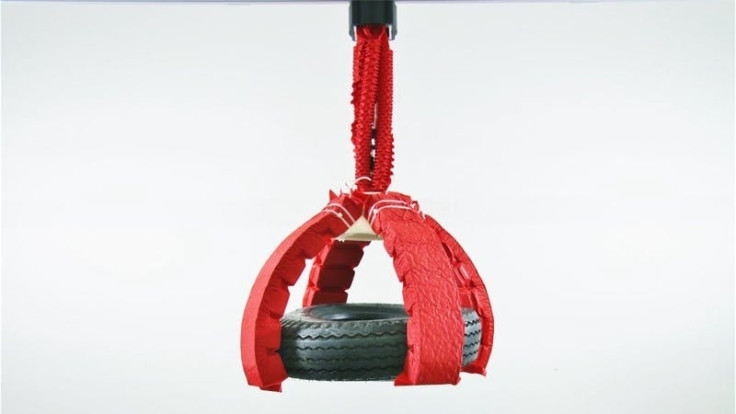Soft robots could soon use these origami-inspired muscles to lift 1,000 times their own weight
The muscle is made from materials costing less than a dollar.
A group of researchers at MIT CSAIL and Harvard has created an artificial muscle that not only delivers the amount of dexterity required by a soft robot but also adds an insane amount of strength into the package.
The new muscle, which is made from materials costing less than a dollar, works without any power source. It is made up of a sealed bag, or flexible skin, which contains an origami-inspired compressible skeleton surrounded by air or fluid.
When the pressure of the medium in the bag is reduced, the skeleton collapses and contracts, driving motion of the skin just like human muscles.
This, in turn, allows the muscle to grip and lift objects that are as much as a thousand times its own weight.
Put simply, if a muscle of this kind weighs around 3 grams, it would be able to lift an object weighing as heavy as 3kg, or something equivalent to a duck lifting a car.
"We were very surprised by how strong the muscles were," says MIT researcher Daniela Rus while highlighting the capabilities of these mucles. "We expected they'd have a higher maximum functional weight than ordinary soft robots, but we didn't expect a thousand-fold increase. It's like giving these robots superpowers.

As the structural geometry and composition of the inner skeleton is the only thing driving the motion of the muscle, researchers experimented with different shapes and materials to create muscles capable of lifting a flower, twisting into a coil, or shrinking down to 10 percent of their original size.
Moving ahead, the enhanced strength and actual muscle-like properties of these muscles could be leveraged to develop technologies for space exploration, medical surgeries, or deep-sea research. The soft-skin could even be applied to develop flexible robotic exoskeletons.
The study is published in the journal Proceedings of the National Academy of Sciences (PNAS).






















